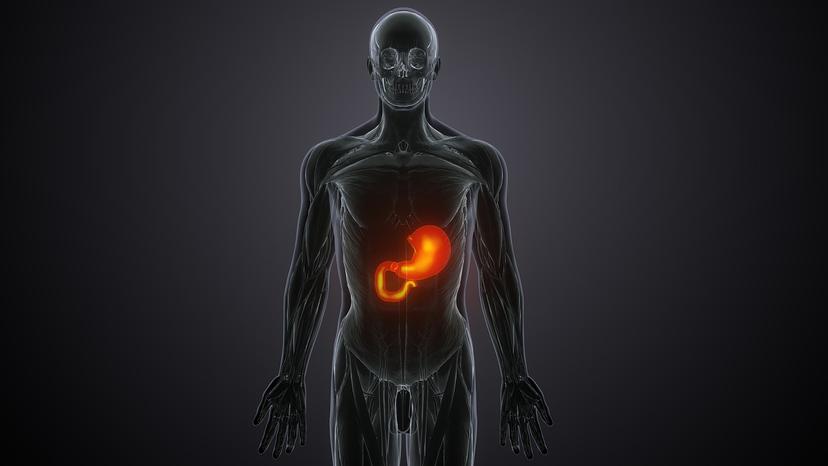
The Role of Bone Marrow Transplants in Blood Cancer Treatment
30 Nov, 2023
 Healthtrip Team
Healthtrip TeamBlood cancers, encompassing leukemia, lymphoma, and multiple myeloma, are a group of malignancies that primarily affect the blood and bone marrow. These conditions can be relentless and challenging to manage with conventional treatments like chemotherapy and radiation therapy. However, medical science has witnessed significant progress in the form of bone marrow transplantation, also known as hematopoietic stem cell transplantation (HSCT). In this in-depth guide, we will delve into the multifaceted role of bone marrow transplants in the treatment of blood cancers.
To appreciate the role of bone marrow transplants, it's essential to first grasp the nature of blood cancers. These malignancies originate in the bone marrow, the central hub responsible for producing all types of blood cells, including red blood cells, white blood cells, and platelets. Blood cancers disrupt this delicate balance by interfering with the normal production and function of blood cells.
Most popular procedures in India
1. Leukemia: Leukemia is a blood cancer characterized by the uncontrolled proliferation of abnormal white blood cells. These abnormal cells can quickly overwhelm healthy blood cells, leading to various complications.
2. Lymphoma: Lymphoma affects the lymphatic system, including lymph nodes, the spleen, and bone marrow. It often leads to the formation of tumors in these organs and can compromise the immune system.
Wellness Treatments
Give yourself the time to relax
Lowest Prices Guaranteed!

Lowest Prices Guaranteed!
3. Multiple Myeloma: Multiple myeloma primarily targets plasma cells in the bone marrow, which are responsible for producing antibodies. The accumulation of dysfunctional plasma cells interferes with the production of healthy blood cells.
The Role of Bone Marrow Transplants
Bone marrow transplantation plays a pivotal role in the treatment of various blood cancers. This procedure involves replacing the patient's diseased or malfunctioning bone marrow with healthy hematopoietic stem cells, which can differentiate into all types of blood cells, including red blood cells, white blood cells, and platelets.
Let's delve into the two primary categories of bone marrow transplants with more detail:
1. Autologous Transplantation:
In an autologous transplant, the patient's healthy hematopoietic stem cells are carefully collected and preserved. These stem cells are harvested before administering high-dose chemotherapy or radiation therapy. The goal of this intensive treatment is to eradicate cancerous cells within the patient's body. After completing chemotherapy or radiation, the preserved stem cells are reintroduced into the patient's bloodstream. This process stimulates the regeneration of healthy blood cells, restoring hematological balance. Autologous transplantation is particularly effective in managing multiple myeloma and specific lymphomas.
2. Allogeneic Transplantation:
Allogeneic transplantation involves using hematopoietic stem cells from a compatible donor. Typically, the donor is a sibling or an unrelated individual with closely matched human leukocyte antigen (HLA) markers. This matching is crucial to minimize the risk of graft rejection or graft-versus-host disease (GVHD). Allogeneic transplants are more complex and carry higher inherent risks than autologous transplants. Nevertheless, they offer the potential for a cure, especially for leukemia and other high-risk blood cancers. Transplanted healthy stem cells from the donor can help reestablish a functioning hematopoietic system in the recipient, potentially eradicating the underlying blood cancer.
These two categories of bone marrow transplants exemplify the versatility and effectiveness of this treatment modality in addressing a spectrum of blood cancers. The choice between autologous and allogeneic transplantation depends on various factors, including the type and stage of the blood cancer, the patient's overall health, and the availability of a compatible donor. It is a decision that requires careful consideration and consultation with a healthcare team experienced in blood cancer management.
Advantages of Bone Marrow Transplants
The advantages of bone marrow transplants are manifold:
1. Potential for Curative Outcomes: Bone marrow transplants hold the potential for curing blood cancers, particularly when conventional treatments have proven ineffective or when the disease is in an advanced stage.
2. Substitution of Ailing Hematopoietic Tissue: By replacing the diseased bone marrow with healthy hematopoietic stem cells, transplantation enables the production of physiologically normal blood cells. This, in turn, reinstates the body's capacity to combat infections and oxygenate tissues.
While bone marrow transplants offer significant therapeutic benefits, they come with complexities and challenges:
a. Identifying a Compatible Donor: For allogeneic transplants, locating a suitable donor, especially one with closely matched HLA markers, can be a daunting task. Not all patients have a compatible donor within their immediate family or the broader donor registry.
b. Risk of Complications: Both autologous and allogeneic transplantation modalities carry inherent risks, including the potential development of graft-versus-host disease (common in allogeneic transplants) and heightened susceptibility to infections.
Bone marrow transplantation has evolved as a transformative therapeutic approach in the realm of blood cancer management, offering hope and, in many instances, the prospect of a complete cure. However, the suitability of bone marrow transplantation depends on several factors, including the specific type and stage of blood cancer, the overall health of the patient, and the availability of a compatible donor. As medical research advances, bone marrow transplantation techniques and outcomes will continue to improve, further solidifying their pivotal role in combating blood cancers. In cases of a blood cancer diagnosis, it is imperative to engage in thorough discussions with healthcare providers to explore all available treatment modalities, including the potential for a bone marrow transplant.
Related Blogs

Stomach Cancer Treatment in the UK: Comprehensive Options for Patients from Russia
Stomach cancer, or gastric cancer, presents significant challenges and requires

A Comprehensive Guide to Spinal Cancer Treatment in the UAE
Planning for spinal cancer treatment involves crucial decisions. Are you

Top Hospitals for Leukemia Treatment in Turkey
Leukemia, a complex and challenging blood cancer, presents a formidable

Top Hospitals for Leukemia treatment in UAE
Leukemia, a complex and challenging blood cancer, presents a daunting

Treatment Options for Cervical Cancer
Cervical cancer is a formidable medical challenge, presenting a significant

Stem Cell Transplantation for ALL in india : Procedure and Recovery
Acute Lymphoblastic Leukemia, commonly referred to as ALL, is a










